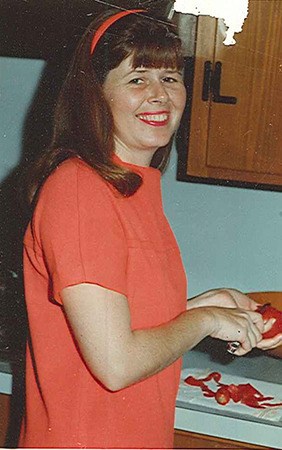By Gretchen Wing
For a four-pound preemie born in 1931, survival is a miracle. In Joyce Seifert’s case, overcoming such adversity was merely a sign of things to come. Growing up in the Depression, surviving a motorcycle accident, risking death on a ship in Antarctica – all these potential stumbling blocks became the stepping-stones of Joyce’s life.
Joyce remembers a happy childhood, mostly in Carmel, where her longshoreman dad took over the family gas station business.
Despite the Depression, or perhaps because of it, “Everybody worked together,” she says; “no one ever seemed sad.”
When they first saw it in the 1970s, Lopez’s quiet beauty reminded Joyce and her late husband Ed very much of pre-tourist Carmel.
Ed and Joyce graduated from high school as friends, and one day, Ed invited himself along for coffee with Joyce.
“We had coffee and talked,” Joyce remembers, “and then we went out that night…and then we went out every night after that for a year.”
Already friends, the couple skipped the awkward phase, straight into love. They married in 1950 and settled in Salinas, where Ed had a job as a field foreman with a produce company. Speaking Spanish, Ed got along well with the braceros. Housewifery and motherhood suited Joyce: son Hal was born in 1951, daughter Alison three years later. Joyce did Cub Scouts, volunteered, and 15 happy years passed. Then one day in 1967 Ed announced the following: his boss had just ordered him to fire his favorite worker, a man Ed had been planning to promote.
“Ed said, ‘You fire him – I quit,’” Joyce smiles. That flashpoint sparked Ed’s career dream of oceanographer, carried since free-diving in high school.
A new plan took shape: Ed would go back to school; Joyce and the kids would support the family. Joyce took a job admitting at the county hospital, and life guarded at the pool; Hal worked at an appliance store; Alison babysat. Joyce got a little motorbike for commuting, and the Seiferts got by. Then the heavy cash box she was carrying home from her pool job slipped, and she crashed.
For two years Joyce could not work outside the home. Her leg was so badly damaged she could not type on the machines of the time. Suddenly, the kids were supporting the family. As soon as she could, Joyce started a daycare center in her home.
“We had children in all three beds,” she laughs, making light of tough times.
When Ed finished Junior College, the family moved to Corvallis, Ore., for him to complete his oceanography degree.

“It was like going back 20 years,” Joyce says.
Alison loved her high school, Joyce worked as an optician, and the Seiferts hosted parties for the oceanography students. When Ed graduated, he joined a research team studying currents in Antartica. He spent six summers down there as part of the “buoy group” – which, unsurprisingly, were all boys…until his team wanted Ed to sign onto a three-month stint.
Joyce smiles: “He said, ‘I’ll do it if you let Joyce go with me.’”
The wild called, and Joyce responded. She quit her job, and got hired inputting data for another research team on Ed’s ship, the 240-feet. Melville, which they boarded in Chile. There was one other woman aboard – and only a tiny handful ever to venture into those waters before her.
Once the engine stopped working and the single-hulled Melville tossed all night in the huge Antarctic troughs. Joyce knew there were not enough survival suits for everyone, and help would not be on its way. Wasn’t she scared? “No…I just knew we weren’t going to have trouble. The only trouble was the crew teasing me.”
No one had warned Joyce about hazing. After an early bout of seasickness, she learned that the crew had closed the vents of her workroom on purpose. Later, on their only landing, wading through a penguin colony, one of the guys grabbed a penguin and thrust it into her arms: “‘Take it home, Joyce!’” But she learned to laugh along, and the crew accepted her.
In the early 1980s, the research grants ran out, and the Seiferts began looking north for work. They had bought Lopez property in the 1970s, and when Ed’s Seattle job fell through, they moved here full-time. Ed put in boat moorings, Joyce ran a travel agency. After retirement, she volunteered with the Thrift Shop, the Lions, Center Church, and the fireworks committee. Hal and his wife moved to Lopez as well, and Alison was nearby in Seattle.
After 60 years of marriage, Joyce lost her beloved Ed in 2009. Moving out of the home they’d made together was hard, as was undergoing open-heart surgery, but Joyce loves the Hamlet and rejoices in her five grandsons and a new baby great-granddaughter. Her summation of a life of challenges is typical: “I’ve been very fortunate.”


